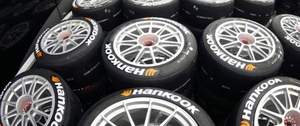Korean tire manufacturers find themselves in a difficult situation
Aug 27, 2020
South Korea's largest tire manufacturers - Hankook Tire, Kumho Tire and Nexen Tire - find themselves in a difficult situation. According to experts, Korean carmakers are increasingly using imported brand tires, while the anti-dumping investigation against Korean tires increases the uncertainty in the global market. At the same time, companies are faced with conflicts both in senior management and between employees and management.
In the second quarter of 2020, three tire makers recorded lower profits amid a slowdown in economic growth due to the pandemic. In the second quarter, Hankook Tire's sales fell 21.4% year-over-year, while operating income fell 33.6% over the same period. Kumho Tire sales dropped 20.8% and Nexen Tire sales fell 42%.
The companies hope for a recovery in the second half of the year, but the situation continues to be difficult both domestically and abroad.
It is difficult for Korean tire manufacturers to rely on growing exports at the moment, including as the US government is considering the possibility of introducing anti-dumping duties on tires from Korea.
Two months ago, the US Steel Workers' Union (USW) filed a complaint alleging that Korea and other countries were supplying the US market with car and light truck tires at discounted prices. In July, the US International Trade Commission said it would continue to investigate to impose anti-dumping and countervailing duties on Korean tires. It is expected that the preliminary results of the investigation will be published no later than early November, and the final decision can be made by early 2021.
In South Korea, Hyundai Motor Group recently increased its use of imported tires. Previously, luxury and premium cars were equipped with imported tires, but now the automaker has begun switching to imported tires in other segments as well.
Kia Motors' recent decision to use Goodyear and Continental tires for its fourth-generation Carnival minivan is also sad news for Korean companies. Carnival is Kia's best-selling vehicle and has been fitted with Kumho and Nexen tires as original equipment up to the third generation. Now tires of foreign production are equipped with Hyundai Palisade and Genesis, Kia K5, K9, Sorento, Stinger and Carnival. Experts believe that the share of imported tires will continue to grow due to consumer preferences.
In addition to difficulties in the Korean and global markets, Korean tire manufacturers face internal conflicts.
At Hankook Tire, a conflict erupts between family members of the company's owners: Cho Hyun-sik, CEO of the holding company Hankook Technology Group, strongly disagreed with the decision of his father, Chairman Cho Yang-rai, transfer his stake to his second son and President of Hankook Tire & Technology, Hyun-beom Cho. Together with his older sister, Cho Hyun Sik, he declares that his father is incapacitated and intends to establish custody of him.
Kumho Tire, in turn, had problems with the union, which led to the blocking of the company's accounts. This, in turn, caused delays in payments to employees and suppliers, but the court has now granted Kumho's request to unfreeze accounts, as it is necessary to keep the business. At the same time, the conflict is still far from being resolved: contract employees require a transfer to a permanent staff, and full-time employees - a wage increase of 5.34%.
